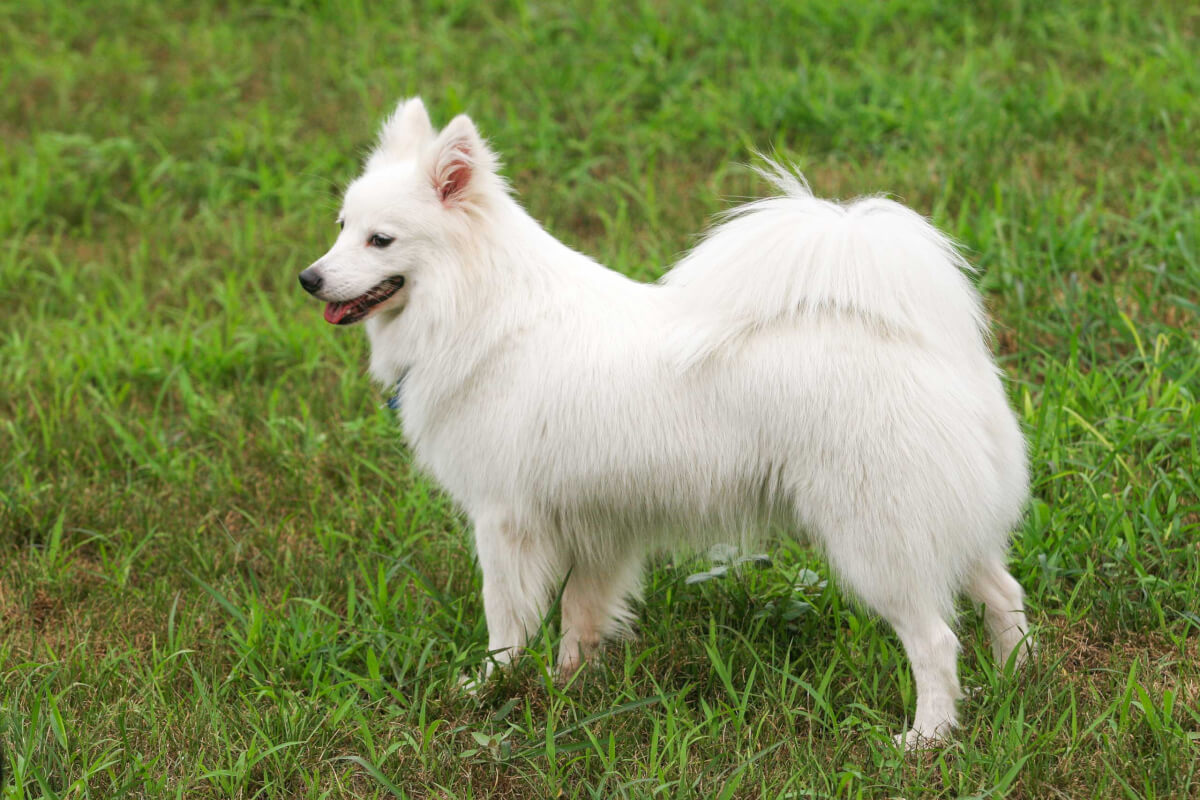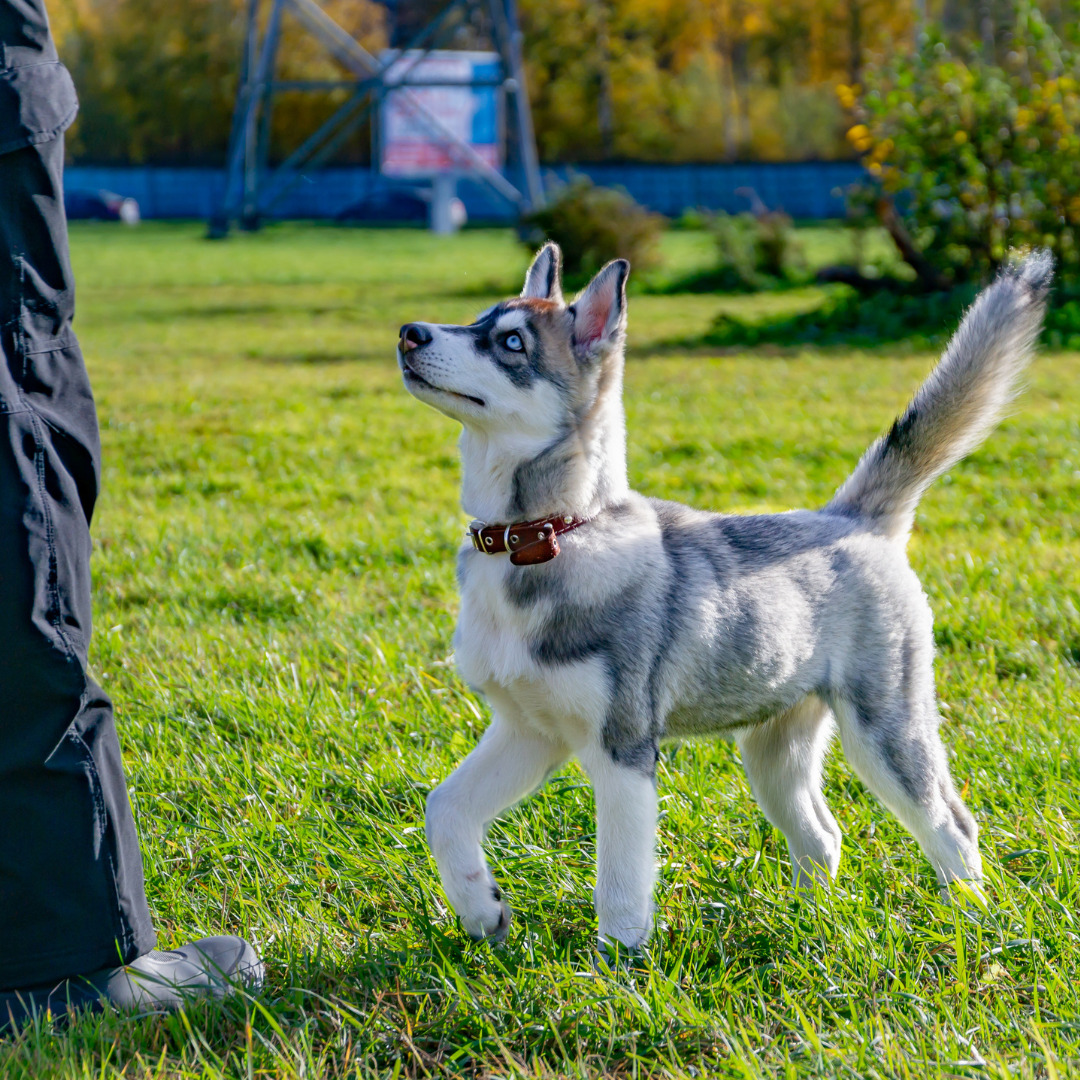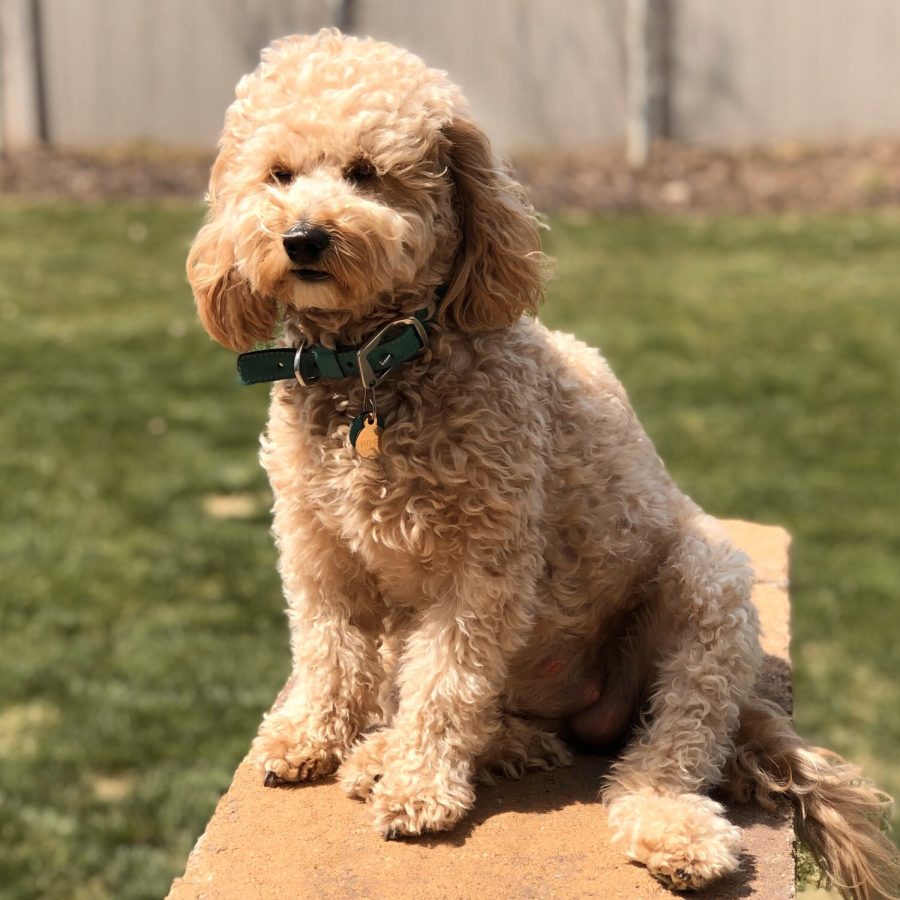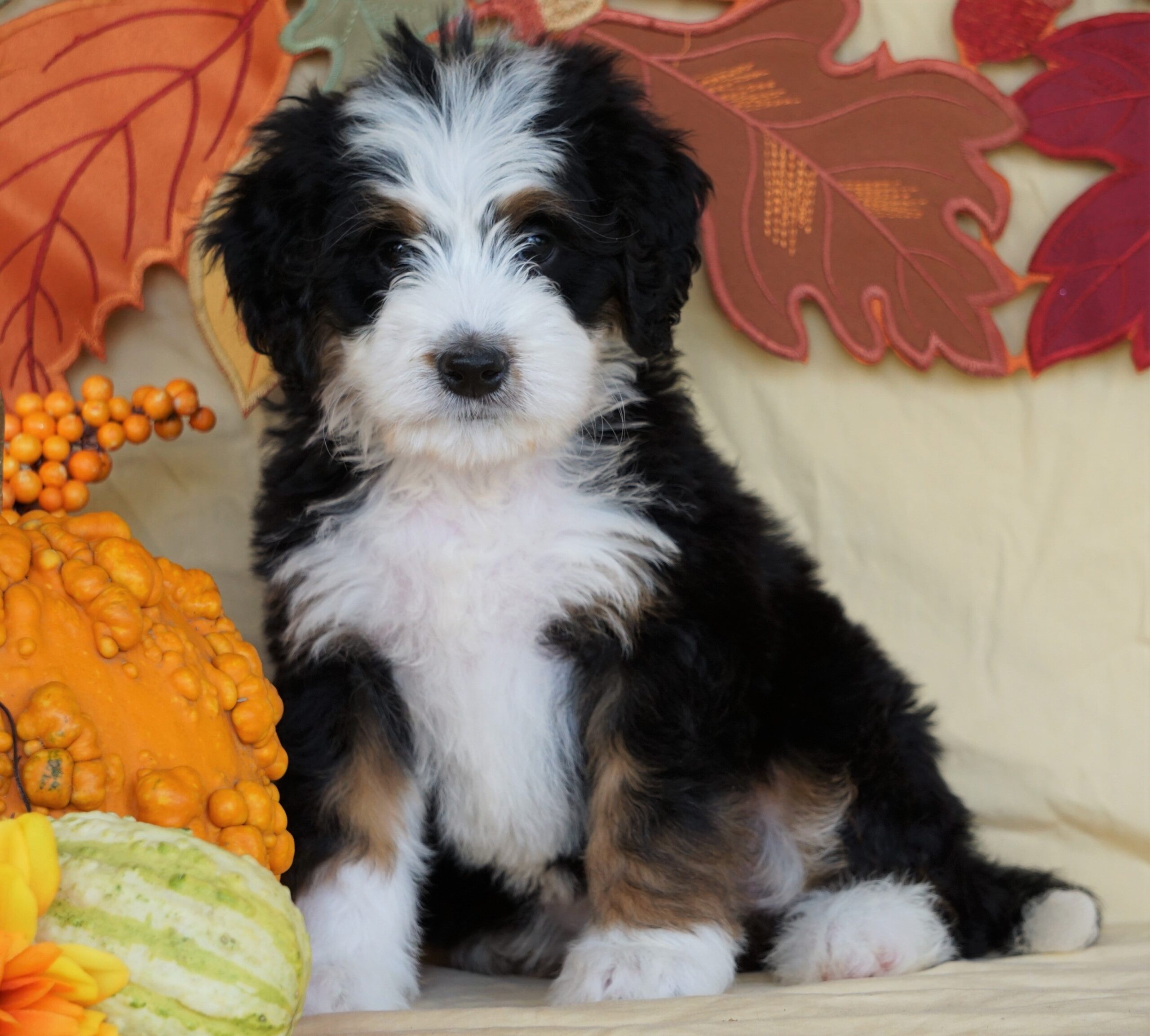The Japanese Spitz is a small to medium-sized breed with white fur, dark eyes, and a friendly temperament. They stand between 10-16 inches tall, weighing 11-20 pounds. Japanese Spitz puppies thrive in safe environments with consistent routines and vet check-ups. Their loyal and family-friendly nature makes them good watchdogs, but proper socialization is key. These dogs are intelligent quick learners needing daily exercise, grooming, and mental stimulation. If you’re considering this breed, understanding their characteristics, temperament, and care needs is essential for a harmonious relationship.
Japanese Spitz Characteristics
When considering the characteristics of the Japanese Spitz breed, one immediately notices their distinct physical attributes and charming temperament. Japanese Spitz dogs are known for their small to medium build, with heights ranging from 10 to 16 inches and weighing between 11 and 20 pounds. Their dark, almond-shaped eyes and small, triangular ears give them an alert and expressive appearance. The most striking feature of the Japanese Spitz is their white fur, accented by black skin around the mouth, eyes, and nose, creating a contrasting and appealing look.
Beyond their physical traits, Japanese Spitz are recognized for their friendly and playful temperament. They are family-oriented, loyal, affectionate, and obedient companions. While they may bark at strangers or other dogs due to their alert nature, proper socialization training when young can help curb this behavior. Additionally, Japanese Spitz thrive on regular exercise, mental stimulation, and grooming care to maintain their health and happiness. These qualities make them an excellent choice for families seeking a devoted and lively canine companion.
Japanese Spitz Puppies
The acquisition of Japanese Spitz puppies entails careful consideration and preparation to ensure a smooth transition into their new homes. When bringing a Japanese Spitz puppy into your family, it is essential to create a safe and welcoming environment.
Puppies require a consistent routine, including potty training, feeding schedules, and socialization. Providing a comfortable sleeping area, appropriate toys for mental stimulation, and puppy-proofing the living space are crucial steps.
Additionally, scheduling a vet check-up, setting up a vaccination plan, and discussing dietary needs with a professional are vital for the puppy’s health and well-being. Japanese Spitz puppies are known for their playful and energetic nature, so dedicating time for exercise and training is necessary.
Ensuring that the puppy feels loved, secure, and part of the family from the start will help establish a strong bond and set a positive foundation for their development.
Temperament & Intelligence of the Japanese Spitz
Possessing a charming demeanor and remarkable cognitive abilities, the Japanese Spitz stands out for its temperament and intelligence among dog breeds. Known for being family-friendly, playful, and energetic, these dogs are also loyal, affectionate, and obedient. While they may bark at strangers or other dogs, proper socialization training when young can help manage this behavior. Japanese Spitz are prone to separation anxiety if left alone for long periods, emphasizing the need for companionship and attention. Regular grooming is essential to prevent matting, and they exhibit moderate shedding, especially during seasonal changes. Providing daily exercise is crucial to keep Japanese Spitz healthy and happy. Training and socialization from a young age are recommended to establish good behavior habits. Regular veterinary check-ups are necessary to monitor their health and address any issues promptly.
| Temperament | Intelligence |
|---|---|
| Family-friendly | Quick learners |
| Playful | Problem solvers |
| Energetic | Adaptive |
| Loyal | Alert |
Are These Dogs Good for Families?
In assessing the suitability of Japanese Spitz dogs for families, their sociable nature and adaptability stand out as defining traits.
Japanese Spitz dogs are known for being family-friendly, playful, and energetic companions. They are loyal, affectionate, and obedient, making them ideal for households with children. These dogs thrive on human companionship and enjoy participating in various family activities. Their moderate energy levels allow them to adapt well to different living situations, including apartments or houses with yards.
Japanese Spitz dogs tend to form strong bonds with their families and are known to be good watchdogs, alerting to strangers while remaining gentle and loving with their loved ones. However, it is essential to provide them with proper socialization training from a young age to ensure they interact well with children and other pets in the household.
Does This Breed Get Along with Other Pets?
When considering the compatibility of the Japanese Spitz breed with other pets, their social nature and adaptability play a significant role. Japanese Spitz dogs generally get along well with other pets in the household, including cats and smaller animals, especially if they are introduced and socialized properly from a young age. Due to their friendly and playful demeanor, Japanese Spitz can form strong bonds with other animals, making them great companions for multi-pet households.
However, it is essential to supervise their interactions initially to ensure a harmonious relationship, as individual personalities and temperaments can vary among different pets. Proper training and socialization are key factors in fostering positive relationships between the Japanese Spitz and other pets. Additionally, providing each pet with their space and resources can help prevent conflicts and promote a peaceful coexistence.
Things to Know When Owning a Japanese Spitz
Making the decision to welcome a Japanese Spitz into your home entails being well-informed about key aspects of their care and behavior. Here are three essential points to consider:
- Regular Exercise: Japanese Spitz dogs are energetic and require 30-60 minutes of daily exercise to stay healthy and happy. Engaging in activities like walks, playtime, or interactive games will help fulfill their exercise needs.
- Socialization: Proper socialization from a young age is crucial for Japanese Spitz. It helps them develop good behavior around people and other animals, reducing the likelihood of shyness or aggression. Consider puppy training classes and exposure to various environments to ensure they grow up to be well-adjusted companions.
- Grooming Maintenance: Although Japanese Spitz have low grooming requirements most of the year, regular grooming is still essential. Brush their coat daily during shedding seasons to prevent matting, and bathe them every few months to maintain skin health. Establishing a grooming routine will contribute to their overall well-being and appearance.
Food & Diet Requirements
The dietary needs and food requirements of Japanese Spitz dogs play a critical role in maintaining their overall health and well-being. It is essential to provide them with high-quality small-breed dog food that meets AAFCO standards to ensure they receive the necessary nutrients for their well-being. Feeding frequency varies for puppies and adults, and it is important to follow packaging guidelines for feeding amounts based on their weight. Transitioning to an adult formula after one year helps prevent weight gain. Consulting a vet for nutritional advice and supplement recommendations is advisable to tailor their diet to individual needs.
| Food & Diet Requirements | |
|---|---|
| High-quality dog food | AAFCO standards |
| Feeding frequency | Varied |
| Transition to adult formula | After 1 year |
Exercise
Engaging in regular physical activity is crucial for maintaining the health and well-being of Japanese Spitz dogs. This breed requires daily exercise to stay healthy, both physically and mentally. Here are three key points to consider when it comes to exercising Japanese Spitz dogs:
- Daily Exercise Requirement: Japanese Spitz dogs benefit from 30 to 60 minutes of physical activity each day. This exercise can include brisk walks, interactive play sessions, or engaging in dog sports. Regular exercise helps in managing their energy levels and preventing behavioral issues.
- Variety in Activities: Offering a variety of activities keeps Japanese Spitz dogs mentally stimulated and prevents boredom. Incorporating activities like fetch, agility training, or obedience exercises can help in maintaining their overall well-being and happiness.
- Consistent Routine: Establishing a consistent exercise routine is essential for Japanese Spitz dogs. Consistency helps in building good habits, maintaining their physical health, and strengthening the bond between the dog and their owner.
Training
Training Japanese Spitz dogs is essential for fostering good behavior and building a strong bond between the owner and the canine companion. Positive reinforcement techniques are highly effective when training Japanese Spitz due to their intelligent and playful nature. Starting training early is crucial to establish good behavior habits, and consistency in rules and boundaries is key.
Socialization plays a vital role in preventing shyness or aggression in Japanese Spitz, making puppy training classes and daily exercise important components of their development. These dogs thrive on engaging their minds, so mental stimulation alongside physical activity is necessary for their well-being. Patience and consistency are paramount in training sessions, as Japanese Spitz respond well to a calm and assertive approach.
Grooming
Regular grooming of Japanese Spitz is essential to maintain their coat health and appearance. These fluffy white dogs have a double coat that requires regular attention to prevent matting and maintain their beautiful appearance. Here are three key grooming tips for Japanese Spitz owners:
- Brushing: Daily brushing during shedding seasons is crucial to remove loose fur and prevent matting. Use a slicker brush or a comb to reach through the dense undercoat and remove any tangles. Weekly brushing during non-shedding periods helps to distribute natural oils and keep the coat clean and healthy.
- Bathing: While Japanese Spitz have low grooming needs most of the year, bathing every few months is necessary to keep their skin and coat clean. Use a gentle dog shampoo to avoid stripping their coat of essential oils. Regular baths can help prevent skin issues and maintain a fresh, fluffy appearance.
- At-Home Grooming: In addition to brushing and bathing, regular at-home grooming is essential for overall coat maintenance. This includes checking ears for dirt, trimming nails when needed, and brushing teeth to maintain oral hygiene. By incorporating these grooming practices into a routine, Japanese Spitz owners can ensure their furry companions look and feel their best.
Health and Conditions
Maintaining the health and well-being of Japanese Spitz dogs is essential for their longevity and quality of life. Like all breeds, Japanese Spitz dogs may be prone to certain health conditions. Common issues to watch for include patellar luxation, a condition where the kneecap dislocates from its normal position; dry skin, which can be managed by avoiding excessive bathing; and runny eyes, which require regular cleaning to prevent sores and tear-staining.
Additionally, Japanese Spitz dogs might be susceptible to dental problems, emphasizing the importance of dental care and monitoring their weight to prevent obesity. Regular veterinary check-ups are crucial for monitoring their overall health, addressing any concerns promptly, and ensuring a lifespan that typically ranges from 12 to 16 years. Genetic conditions such as patellar luxation and hip dysplasia should be monitored, and early detection and intervention can help maintain the well-being of these beloved companions.
Conclusion
In conclusion, the Japanese Spitz is a breed with a rich history and distinct characteristics, known for their devoted, energetic, and family-friendly nature.
With a striking white fur coat and dark almond-shaped eyes, these dogs require regular grooming and exercise to thrive.
Their intelligence and temperament make them well-suited for families, although proper training and socialization are important.
Overall, the Japanese Spitz is a wonderful companion for those willing to provide the care and attention they need.




